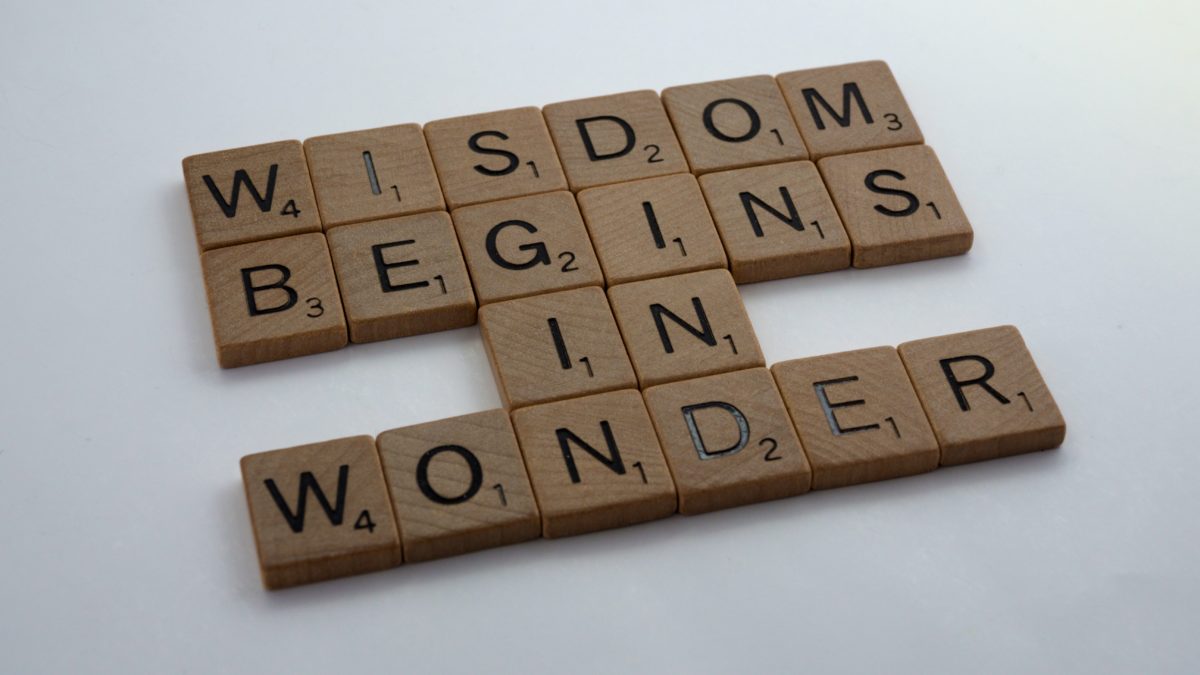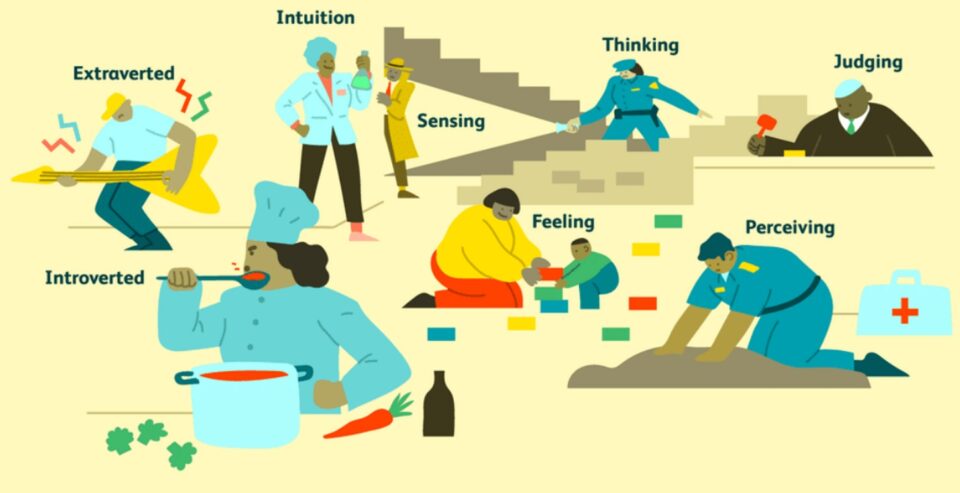Wisdom from the World’s Religions (Source 3)

"Wisdom from the World's Religions" (Source 3)
Delivered by Rev. Dr. Tony Larsen at Unitarian Church North
on July 26, 2020
Our calendar is an interesting mixture of cultures and religions. For example, the year we're in (2020) is based on the birth of Jesus, so we have Christianity to thank for that. We have a Jewish week of 7 days, but the days are named for Norse gods (Woden's Day became Wednesday, Thor's Day became Thursday, etc.). The number of months is Babylonian, but the names of the months are Roman gods. And we mark them all with Hindu-Arabic numerals.
Today's sermon is the third in my series on the six "sources" of our UU faith:
("The living tradition we share draws from...")
"Wisdom from the world's religions,
which inspires us in our ethical and spiritual life."
If you look carefully, I think you'll find the wording here rather interesting. Take the word "inspires." If it had been written without the "s," the meaning would have been subtly different. "Inspires" (with the "s") indicates that this verb goes with the word "wisdom": "wisdom...which inspires us." Without the "s," it would have gone with "the world's religions": "the world's religions which inspire us.
Why might this be important? Both of these ways of speaking make complete sense on their own, of course; but there's a subtle difference between them. Without the "s," the statement implies that every world religion is inspiring. But the way it's actually formulated (with the "s"), does not necessarily imply that. The wisdom we find inspires us--and while we can affirm that probably every religion contains some wisdom, that doesn't mean each one has the same amount. (Nor does this statement actually define what that wisdom is--that's left pretty much open to individual interpretation.)
The beauty of this statement, it seems to me, is that it attempts to be respectful of the world's religions without blandly assuming that they're all really saying the same thing, or that they're all equally inspiring (which you and I could never really agree on anyway--since we may have different spiritual needs).
The other interesting wording here is: "ethical and spiritual life." The words here make it clear that the wisdom we are talking about can be of more than one kind. Some religions may inspire us ethically, some may inspire us spiritually. The difference (at least in my mind) is that ethics refers to how--how we act, how we live, how we treat other people and the world around us; spirituality refers to why--why we would want to do that. So, for example, your ethics may tell you not to lie or steal or hurt people; but your spirituality gives you a reason why. It says, "Love your neighbor because every person has a divine nature," or "because that's the best path to enlightenment," or "because God wants you to" or "you'll be a happier human being that way."
Ethics is how to live; spirituality is why to live that way.
And frankly, some religions are better at giving you how, and some are better at giving you why--and only you can decide which ones work, which ways. For me, personally, I get my ethics mostly from my Judeo-Christian heritage. But my spirituality comes from Buddhist and Daoist sources. Yours may be completely different; but then that's what makes this such an interesting church, isn't it?
So that's a bit on the wording of this, the third source of our UU faith. But the more interesting question, I think, is how Unitarian Universalists ever got this world-religion thing in our covenant in the first place. Neither Unitarianism nor Universalism started out that way. At the beginning of Unitarianism, 450 years ago--and the beginning of Universalism 250 years ago--these two faith traditions (of which we "UU's" are now the heirs) were...completely...Christian.
I mention this because sometimes when people find our church, and see the variety of beliefs here, they think maybe we're a new consciousness cult from the West Coast. No, we're not. We go back 450 years (in the case of our Unitarian story) and 250 years (in the case of our Universalist story). And the early years--of both denominations--were decidedly Christian. There were no Buddhist UU's in those days; no Jewish UU's, no Pagan UU's, no Humanist UU's. (Or, if there were, they were pretty much in the closet.) Unitarians and Universalists, at their beginnings, both considered themselves Christian--liberal Christians, to be sure--but Christians nonetheless. Then, starting in the 1830's and 40's--with transcendentalists like Margaret Fuller and Ralph Waldo Emerson--some of the more progressive (even radical?) Unitarians started saying: "Well, maybe we can learn from other religions too." At first the idea was: These other religions are trying to say, in their own way, what Christianity says in its "superior" way. That is, world religions can be seen as imperfect way stations on the road to Christianity. And all these people of other faiths are really Christians without knowing it.
There's a story I like about a Christian church that had burnt down, so the congregation had no place to worship. The nearby rabbi offered his synagogue for the Christians to use on Sunday (since the Jewish congregation met on Saturday, so there would be no scheduling conflicts). The minister was, of course, grateful, and said to the rabbi: "That was very Christian of you." (I'm sure the rabbi thought it was very Jewish of him!)
So, these progressive 19th-century Unitarians thought world religions were imperfect imitations of Christianity. But then people said, "Well, wait a minute. Maybe that's a little patronizing. Perhaps we shouldn't say the world's religions are all slightly inferior versions of Christianity, but rather: All religions are actually teaching the same thing as Christianity. Which is to "love God and love people." This was based on Jesus's formulation in the New Testament of the two basic commandments: To love God with all your strength, all your mind, all your heart, etc...and to love your neighbor as yourself. This, people felt at the time, was an improvement on the earlier idea, in that it gave equal status to all the world's religions.
However, it had its own problems. One was that religions don't all teach the same thing. Or, to be more precise, there are things that almost all religions agree on (like the Golden Rule and "Love your neighbor as yourself")--but there are many other things on which they disagree; and to say the things they disagree on are not basic or important--is to greatly misinterpret some world religions. Besides, even if we were to agree that all religions have certain basic beliefs in common, love of God would not actually be one of them. There are traditions like Jainism and Theravada Buddhism that do not worship God, and, of course, earth-centered traditions like Shinto, Animism, Paganism, and some forms of Hinduism...that worship many gods.
Still, this somewhat naive belief--that all religions were basically saying the same thing--did result in some good consequences. It got people of different religions talking to each other, and it was largely through the work of these progressive Unitarians and Universalists that Chicago held its first Parliament of the World's Religions in 1893. (I was able to represent the UUA at the 100th anniversary of this historic meeting, in 1993. But that's a story for another day.)
Incidentally, you'll see a vestige of this belief--that all religions are basically the same--as late as 1961 in the Purposes and Principles agreed upon at the time of the merger of the Unitarians and the Universalists. That statement listed, as one of the purposes of the newly formed UUA:
(To) cherish and spread the universal truths
taught by the great prophets and teachers of humanity
in every age and tradition,
immemorially summarized in the Judeo-Christian heritage
as love to God and love to mankind (later updated to humankind).
That's the first time either the Unitarians or the Universalists ever officially recognized the importance of other world religions in their covenants. (And even then they didn't actually say "world religions" but referred somewhat obliquely to "universal truths" taught by "great prophets and teachers." Plus, they still seemed to imply that these teachings could be summarized as "love to God and love to human beings.")
Now, some of the Unitarians and Universalists attending the Parliament of the World's Religions back in 1893 thought that, since all religions were basically the same at their core (which they're not, but that's what they thought)--maybe it was time to create a new world religion based on all the old ones. In fact, many of these Unitarians and Universalists thought our own religion would be a natural place for everyone else to come together in. This sounds like a wonderful idea--and in many ways it is--but it never completely ends divisions between one religion and another, because not everyone in any given religion is ever willing to lay aside their unique doctrines and rituals, in order to merge with another religion.
Historically, there have always been movements to bring different religious traditions to the same table. In the 4th century, when Christianity became the official religion of the Roman Empire, people thought that the Jews would eventually convert. After all, Jesus was a Jew, and the Jewish scriptures were included in the Christian Bible. Christianity was Judaism improved--so why wouldn't the Jews just accept Jesus as the Messiah they had been waiting for all these years? But most of them didn't.
Consider the birth of Islam, around the year 600. An Arabian prophet named Muhammad sees Jews who believe in one God, and Christians who believe in one God, and an Arabian tribe called the Sabeans who believe in one God--and he thinks: They're all right, and there's no reason we can't all be united. So Muhammad goes about trying to bring people together.
Now, you need to know: Muhammad didn't think he was starting a new religion, but just bringing together the old ones. He believes in Judaism. He believes God spoke through Abraham and Moses. He believes in Christianity. He believes Jesus was the messiah, the savior, sent by God, who will come again on the Judgment Day. He accepts all that. Only, he believes God has spoken again, and that God wants to unite the Jews and the Christians and the Arabians into one religion, under one God. Which sounds like such a wonderful idea. But Christians don't rush to accept Islam--any more than Jews rushed to accept Christianity.
Move ahead now to the 1400's. Go to India. There you'll find a boy named Nanak, whose parents are Hindu but whose schoolmaster is Muslim. In his day there are Hindu poets and minstrels singing songs of their love of God, and there are Islamic mystics (called Sufis) who sing similar songs in praise of Allah. Nanak--and others--see no reason why Hindus and Muslims should fight each other. So he gets a revelation from God that he should unite everyone, in a common love of God. Nanak declares himself neither Hindu nor Muslim but a lover of God, and his followers come to be called Sikhs (which just means followers, or disciples). Many Hindus and Muslims do give up their differences and come together to be united in his faith. But many do not. So where there had once been Hindus and Muslims, there are now Hindus, Muslims, and Sikhs.
Move ahead now to the 1800's. Go to Persia. Just as Christianity arose out of Judaism, and Islam arose out of Christianity and Judaism, a new religion arises out of Islam: The Baha'i faith. Ali Muhammad, known as the Bab (Arabic for door, gate, doorway, gateway), announces that he is the Mahdi (the promised one expected by Shia Muslims). His disciple, Baha-ullah, declares that he and the Bab are God's messengers, and he founds the Baha'i faith. This is a religion to unite Jews, Christians, Muslims...and Zoroastrians, Buddhists, and Hindus. Now, you know how Muslims accept Abraham and Moses and Jesus as prophets (along with Muhammad, of course)? Well, the Baha'i faith does them three better: It accepts Abraham, Moses, Jesus, Muhammad, Zoroaster, Buddha, and Krishna as prophets--as well as the Bab and Baha'ullah, of course. Baha'ullah believes that he can bring all the religions together, and show them that each of their prophets were really speaking for the same God. The Baha'is try to unite everybody in one religion, but not everyone wants to be united.
And you see, that's always what happens! People come along and see the divisions, and find religions arguing with each other, and they say, "We shouldn't be divided. We all worship the same God. Let's get together and unite in one religion." And then you know what happens? The people who want to unite, do. And the people who don't, don't. And where you started out with two religions--by trying to make the two into one, you end up with three. So when you see people today trying to unite everybody in one religion, you've got to know: This isn't going to work.
That doesn't mean we should give up trying to foster understanding among different religions--and seeing the things we have in common (because we really do have a lot). But the world will never all be the same religion. And that's a good thing. It would really be boring if it were.
Incidentally, there's something you may not know about our Unitarian and Universalist history. And that's how the symbol of the flaming chalice (in 2 circles) came about. The chalice by itself was designed by a Czeck artist (named Hans Deutsch) in 1941 for the Unitarian Service Committee, which was rescuing Jews and others fleeing Nazi Germany. Many refugees had no identification papers, so the Unitarian Service Committee issued their own travel documents, using Deutsch's flaming chalice as a seal.
Move ahead a few years to 1947. Universalist ministers were talking at their 1947 convention about how they didn't have a symbol, like the Unitarians did. And as they talked about it, they felt they should have one, and that it should include a circle, to represent all people. But what to put with the circle? Some said put a cross in the center of it; some said the cross should be on top; someone even suggested a sailing ship bringing John Murray (the founder of American Universalism) to America! Later, one minister came up with the idea of the cross being in the circle, but off-center--thus leaving the center position open, as an invitation for other faiths to be represented in the great circle. And this caught on, all over. In effect, Universalists were saying: Christianity is the way that works best for us, but it's not the only way. And this followed, actually from the Universalist principle of universal salvation. For, you see, if God was going to save everyone eventually, perhaps it was true that God was already working through every religion. And a new meaning for Universalism developed: The belief that all religions have something to teach us, which is now reflected in our UU Purposes and Principles in our third source: (The living tradition we share draws from) wisdom from the world's religions, which inspires us in our ethical and spiritual life.
Now, when the Unitarians and Universalists merged, in 1961, they put both of these symbols together--the flaming chalice and the off-centered cross. The chalice is drawn in two circles, representing the coming together of two different faith traditions. And it's off-centered, like the Universalist cross was), only now it's off-center to the right, rather than to the left (but that has no political implications, I'm sure!).
OK. So we UUs say we care about the religions of the world; we consider them to be one of the sources of our UU faith. But you may ask (or people may ask you), why is it important that we celebrate religions from around the world? Why not just keep to one tradition, instead of getting all mixed up and confused with conflicting beliefs and practices?
There are least four reasons I can think of, for why we should study other religions.
The first reason is tolerance. You know, there's a tribe in Africa that has an interesting custom. When a visitor comes to their village, they spit on that person's feet. They do that to cool and moisturize their visitor's feet after a long, hot, dry journey. It is meant to be polite, but--as you might guess--when white people first encountered this tribe, they thought it was an insult. If I may use this example as a metaphor, I'd say that learning about religions other than our own...helps us understand the meaning behind actions that may seem foreign or harsh when seen through only one scripture, one book, one tradition.
But the second reason for learning about other religions is that there really are valuable insights in other people's spiritualities, and it seems a shame to cut yourself off from that, if you don't have to. For example, I once came across a story from the newsletter of the Hindu Temple of Greater Chicago, which I found kind of helpful in my life. The story goes that when King Akbr, the emperor of India, was listening to his advisors one day, one of them (who was trying to ingratiate himself with the king) said, "O King Akbar. You are so great. You are greater than all other beings. In fact, you are greater than the Lord of the Universe."
Akbar thought about this for several days, wondering, "Could this really be true? Could I actually be greater than God? If so, in what way?" He asked his other ministers if they knew in what way he was greater than God. And of course, none of them knew what to say. They figured, "If we tell him he's not greater than God, he may get angry. But meanwhile, we don't know how to answer how he is greater than God."
Now, King Akbar had a minister named Birbal, who was from a Hindu priestly family. Birbal had a sharp wit, and often helped King Akbar see things more clearly through humor. So Birbal said to Akbar: "O King, there is one way in which you are greater than God. There's one thing you can do that God can't do." And Akbar, intrigued, said, "What is that?" And Birbal said, "Your Majesty, if you want to banish someone, all you have to do is throw them out of your kingdom. But if the Lord of the Universe wants to banish a person, where can he send them?"
King Akbar understood. And smiled.
That's a story I try to remember when I get to thinking I'm pretty much hot stuff, because I can "banish" someone who I think is unworthy of my presence. I just remember that my so-called power to separate myself...comes from my lack of the power...of the Spirit of Love.
So that's another reason it's good to study other religions--we can gain insights for our own spiritual journey.
And a third reason for learning about different traditions is that we begin to see how they have all influenced each other. People who read only one book--whether it's the Bible, the Torah, or the Qur'an--never get to see that. They think their religion was just dropped down from the sky, or that it developed in a vacuum. But when you have a whole library of books at your disposal, you can see that this really is an interdependent web. The Vietnamese Buddhist monk, Thich Nhat Hahn, made this point at the 100th anniversary of the Parliament of the World's Religions--in 1993. He admitted that Buddhism contains many non-Buddhist elements. But, he said, that's perfectly fine. "Look deeply in a flower," he said. "You see sunshine, rain, earth. Take away light from the sun, water from clouds, minerals from earth--and you have no flower." His point was that every religion develops in an environment. No religion just pops into existence without borrowing from other religions. Every religion is influenced by the others around it. And this is good!
This is what we in this church get to discover--simply by opening up more than one book. We get to see how one religion influences another, and how certain ethical rules (like "Love your neighbor" and "Do unto others as you would have them do unto you") are present in every major religion. This is a great gift. And it is ours, as long as we are willing to open up more than one book.
But perhaps the greatest gift from exploring different traditions is to have our assumptions challenged. That's not always very comfortable, but it is an important gift. You know how some religions have a sign that says, "Come here and have all your questions answered”? Well, if we UUs have a sign, it's more like "Come here and have all your answers questioned." And that's what listening to different traditions can do for you--it can help you question your answers. (If you are not willing to listen, you can never change.)
And of course many of us don't like the idea of change--we want to have everything tied down, so there are no questions left. And you can see that, in a lot of what passes for conversation (as Julie Zumach reminded us a couple months ago in her sermon on listening). One person gives her side, and then when it's the other person's turn, she's not really listening to that person's point of view--she's marshaling her arguments against it.
It's kind of like the husband who is just sure that his wife is losing her hearing. So he devises a little experiment to test her hearing ability. He starts out from the back of the room where she's reading, and says softly, "Can you hear me?"
No answer, so he comes in a little closer, to the middle of the room, and says again, softly, "Can you hear me?"
Still no answer. So now he comes up right behind her chair and says, "Can you hear me?" And she turns around and says, "For the third time, yes, I hear you."
Get your assumptions challenged. So if anyone asks you why we celebrate and learn from different religions in this church, tell them we like to challenge our assumptions. And tell them we like to understand people who are different from us. And tell them we don't want to block off possible opportunities for spiritual growth, no matter where they might come from.
And tell them we don't do this in order to advocate one world religion for everyone--we understand that people have different spiritual needs, and one menu cannot satisfy every person's diet. So even our own religion--which is the best religion (for me, and perhaps for you)--we will not try to impose on others. Because we think the world is better off when we don't all think alike. For, as our Unitarian forebear Ralph Waldo Emerson once put it: "If two people think exactly alike, one of them isn't thinking."
So may the Source be with you--
this third UU source:
Wisdom from the world's religions,
which inspires us in our ethical and spiritual life.
And I say Amen to that.
And A-women too!



